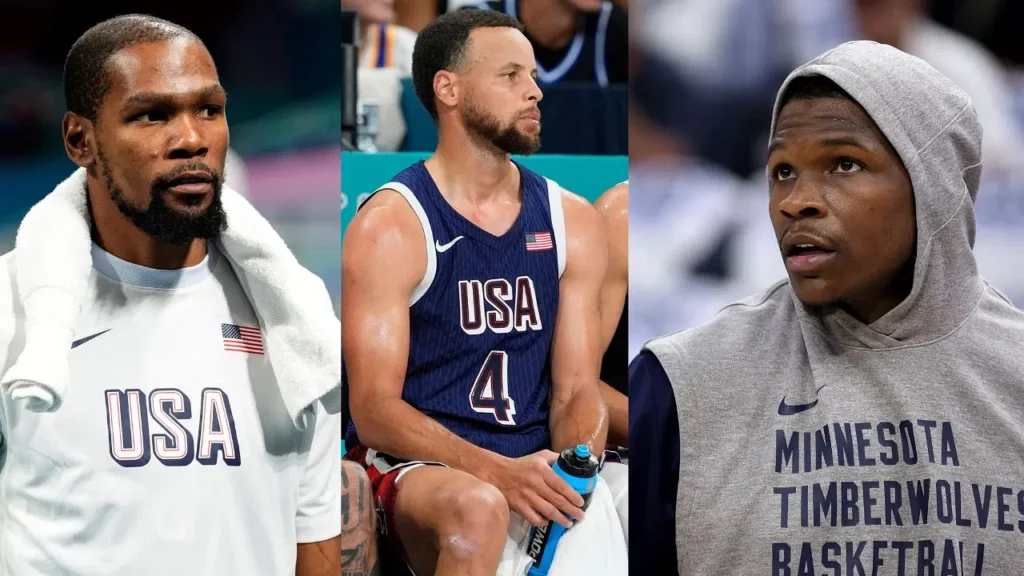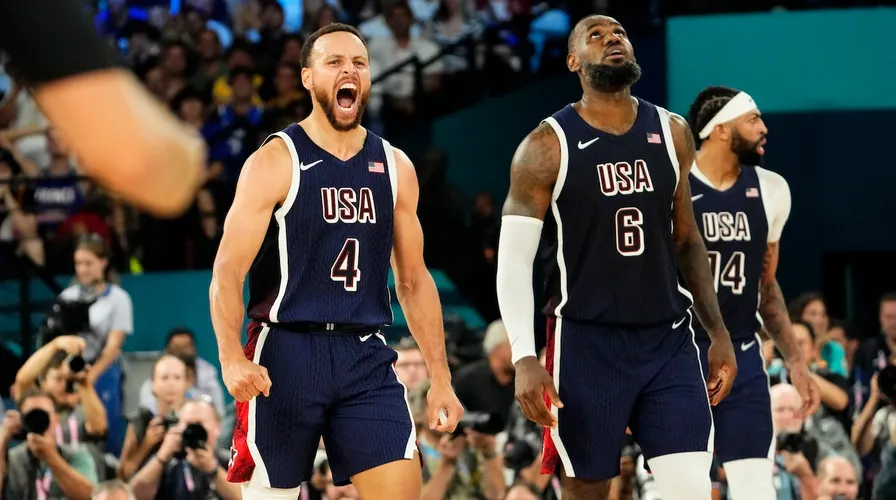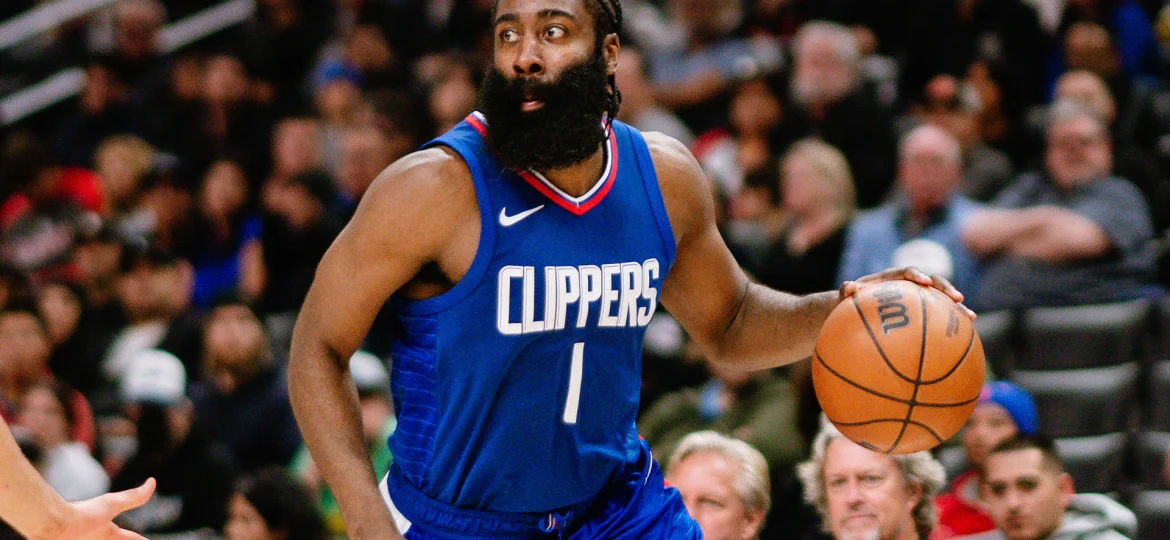The 2024 Paris Olympics will go down in history not just for thrilling competitions and national pride but also for the remarkable victories of the U.S. men’s basketball team, led by none other than Steph Curry. With a dazzling display of skill, teamwork, and determination, the Americans clinched the gold medal, solidifying their status as a dominant force in the realm of international basketball. However, amidst the glory and celebration, an unexpected turn of events unfolded – a surprise drug test for Steph Curry soon after their monumental achievement.
In this article, we delve into the implications of drug testing on athletes, particularly focusing on Steph Curry’s experience. We explore how such protocols affect performance, scrutiny, athlete perception, and the overarching narrative in sports.
Olympic Glory and the Reality of Drug Testing
The U.S. men’s basketball team’s journey to gold in Paris was nothing short of spectacular. They showcased a blend of skill, strategy, and resilience, culminating in a gold medal victory that left fans euphoric. However, the celebration took an unexpected twist when several players, including Curry, were subjected to surprise drug tests.
Olympic sports maintain rigorous drug testing protocols to uphold fair competition, creating a level playing field among the athletes. These protocols are applicable across all events, including basketball. After the final whistle blew, signaling the U.S. team’s triumph, the routines and pressures of elite competition resumed behind the scenes. Within hours of the victory, Curry, along with fellow stars Kevin Durant and Anthony Edwards, found themselves in the testing zone, raising questions about the timing and implications of such measures.
Steph Curry’s Olympic Performance
Steph Curry dazzled audiences during the 2024 Olympics, reminding the world why he is considered one of basketball’s greatest talents. His performance in the semifinals against Serbia was a highlight reel in itself, as he scored an impressive 36 points, leading his team confidently towards the final. In the gold medal game against France, Curry continued to deliver, contributing 24 points to secure their victory.
High-pressure performances like these not only captivate fans but also raise questions about testing protocols and athlete performance. When an athlete excels at such a high level, what binds them to scrutiny? The expectations placed upon elite athletes can lead to heightened vigilance, with governing bodies keen to uphold the integrity of the sport. This is where surprise drug tests come into play – a strategy intended to deter potential cheating but can leave even the cleanest athletes pondering the implications of their prowess.
The Disparity in Drug Testing
Intriguingly, not all athletes face the same scrutiny. For instance, LeBron James, a key performer for Team USA, did not undergo a drug test after the gold medal win. This inconsistency raises substantial questions about the fairness and transparency of the testing process. Why would Curry, who performed spectacularly throughout the Olympics, be tested while another star player is omitted?
The implications of inconsistent drug testing cannot be understated. Athletes often grapple with perceptions of fairness, which can heavily influence team dynamics and public trust in the sport. If competitors perceive a lack of consistency, it could impact morale, leading to discontent among team members who feel unfairly scrutinized.
Steph Curry’s Unique Perspective on Pressure
For Steph Curry, the 2024 Olympics marked his first experience on this esteemed international stage, and it could potentially be his only Olympic appearance due to age and career trajectory. This context adds layers to Curry’s view of performance and scrutiny. As an athlete who has already achieved profound success at multiple levels, the stakes during these Games were undoubtedly high. The unexpected pressure of a surprise drug test immediately after such an achievement only magnified the significance of his performance.
Curry’s unique perspective may shape how he approaches the challenges of competition moving forward. Having navigated the highs and lows of scrutiny, he might emerge with an even greater understanding of expectation management not only for himself but also for his peers.
Social Media and Media Coverage
In the age of instant communication, news of Curry’s surprise drug test whipped up an online frenzy. Social media erupted with discussions ranging from shock to supportive comments, illustrating the polarized feelings surrounding the topic. Critics pointed out the peculiar timing and the implications of drug testing immediately following a gold medal celebration. Others engaged in meaningful discussions regarding fairness and the overall efficacy of drug tests in sports.
Media coverage surrounding this situation illuminated differing narratives. While some outlets focused on Curry’s performances and questioned the drug testing protocols’ timing, others emphasized the importance of maintaining integrity in sports. This dynamic media landscape provides an opportunity for varied interpretations of athletes’ actions and the structures governing sports.
The Influence of Sponsorship on Image Management
Unexpected drug tests can significantly impact athletes’ sponsorships and endorsement deals. Major corporations closely monitor public perception, and athletes who face scrutiny might find themselves in precarious situations. Given Curry’s stature as one of the sport’s most recognized figures, the outcome of this incident could influence the trajectory of his brand and partnerships.
Athletes must navigate these challenges while managing their public image. The balance between performance excellence and adhering to ethical standards requires meticulous attention. How Curry responds publicly to this incident may reshape perceptions of his brand within sponsorship circles.
The Future of Drug Testing in Sports
As times change, so do the practices and rules surrounding drug testing in sports. The incident involving Steph Curry underscores the ongoing debates about the effectiveness of existing drug testing protocols in the Olympics. Many athletes are now advocating for consistent and fair testing methods to protect not only their reputations but also the integrity of their respective sports.
Looking ahead, this situation could prompt changes in Olympic policies regarding drug testing, especially in high-profile sports like basketball. Expectations may shift towards ensuring that investigations prioritize athletes across the board, thereby promoting fairness and transparency.
Conclusions from the Incident
The surprise drug test on Steph Curry post-Olympic victory elicited meaningful conversations around athletic ethics, performance pressures, and the role of drug testing in sports. It becomes evident that incidents like these go beyond individual athletes, shaping the culture surrounding competitive sports.
While Curry’s performance at the Olympics stands tall as an impressive career milestone, the implications of the drug testing incident offer valuable insights into the complexities of athlete perceptions and public trust. As society reflects on this event, considerations surrounding fairness and ethical standards in sports will remain crucial in shaping future narratives.
Engaging in the Conversation: A Call to Action
As fans and supporters of sports, we have a unique opportunity to engage in meaningful discussions about fairness in competitive environments and the pressures faced by athletes. This incident encourages us to explore the roles that mental health and public scrutiny play in the culture of athletics.
We invite you to become part of this conversation. Share your thoughts on the influence of drug testing in sports, your perspectives on fairness, and how incidents like those surrounding Steph Curry shape the legacy of athletes in the long run. Engage with fellow fans, share experiences, and foster a dialogue around the complexities of modern sports.
In a world enamored with the thrill of competition, it is vital that we acknowledge the intricacies behind every athlete’s journey. Through awareness and engagement, we can contribute to a more informed and equitable sporting landscape.








